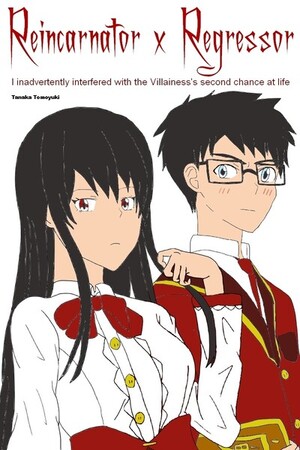Chapter 21:
Footprints
The Last Revision
“The story you leave unfinished is the one they carry forward.”
— August Denier
The world did not end.
It should have. When the Master Draft cracked apart, when its pages scattered into the sky like the ash of burned constellations, I thought we would fall with it. But instead, the plain beneath us stilled, trembling one last time before finding its balance.
And now, days later, or maybe weeks, I had lost the measure of time, I stood in a town I almost recognized.
The walls leaned, patched together from wood and stone scavenged from half-faded ruins. Children’s laughter echoed down streets that had been silent when I first passed through them. Market stalls stood where fissures once opened, their cloth awnings stitched from whatever fabric had survived. The scars of the Rewrite Storm were still there. You could see doorways that led to nowhere and stairs that ended mid-air, but life moved carefully around them, reshaping absence into space.
Ashen walked at my side, his limp more pronounced than it used to be. A line of scar cut from his jaw to his temple, thin but deep, like a punctuation mark the world had pressed onto him. He didn’t complain about it. He never would.
“This place feels different,” he muttered, his voice low, steady as always.
“It is,” I said. My hand brushed against the empty space where the book had once pressed against my ribs. I still expected its pulse, its hunger, its weight. But there was only me now.
He looked at me, and for once there was no soldier’s steel in his eyes, only weariness, and the fragile relief of someone who had survived one battle too many. “We’re still here.”
The words weren’t triumphant. They were simple, almost small. But they rooted me more than any grand declaration could have.
* * *
The new scriptorium stood at the town’s center, a building half-built from timber, half-grown from the remnants of something older. Its roof leaned awkwardly to one side, its windows mismatched, but light spilled warmly through the cracks. People came and went, carrying scraps of paper, tablets, even carved wood etched with words.
Inside, the shelves were uneven but crowded. Some held whole stories, copied carefully in ink. Others held fragments of half-written songs, letters that ended mid-sentence, or testimonies interrupted by storms or silence. No one tried to fix them. They were placed side by side as if completeness was no longer the only measure of worth.
I ran my fingers along the edge of one shelf, pausing when I saw a page I knew. The handwriting was Lina’s, unmistakable in its looping urgency. A letter that had once ended abruptly, cut off before the last line.
I swallowed hard. It hadn’t been polished. It hadn’t been finished. But here it stood, preserved not as failure, but as proof that even broken words carried weight.
Ashen lingered behind me, respectful of the moment. He didn’t speak, didn’t intrude. He only stood close enough that I felt his steadiness at my back, a reminder that not every silence had to be lonely.
I moved deeper into the shelves. There was a lullaby hummed by a mother who had never reached the final verse. Next to it was a ballad whose refrain was written three times, as though the singer had never found the courage to move past it. There was even a coronation speech with no conclusion.
I should have felt sorrow. And I did, in part. But more than that, I felt something else: continuity. Proof that stories did not need perfect endings to matter. Proof that Lina had been wrong to believe she destroyed everything she left unfinished.
I closed my eyes, and in the hush of the library, I almost heard her voice again. Not sharp, not desperate, just her, weary and tender: “Maybe they mattered even half-finished.”
My throat tightened. “They did,” I whispered back. “You did.”
When I opened my eyes again, the shelves were still there. The fragments were still waiting. And I realized I wasn’t just reading what others had left behind. I was standing in the proof of what we had built: a world that allowed even the half-formed to live.
* * *
By the time we left the scriptorium, dusk had fallen. The sky stretched wide above the town, hollow where the Master Draft had once loomed. For the first time, I saw emptiness not as loss, but as space.
Ashen stopped at the threshold, scanning the horizon the way soldiers do, as if even peace could conceal an ambush. “You’ll keep walking,” he said quietly. It wasn’t a question.
I nodded. “I have to.”
“And writing?”
I let the silence stretch between us. Then, finally, I exhaled. “Not the way I used to. Not the way she did. But yes. Writing, not to bind, not to preserve. Just to live.”
He accepted that with a small incline of his head, as if nothing more needed to be said.
I stepped into the street alone. The road stretched out, empty but steady, leading beyond the walls into a horizon that no longer threatened to swallow us whole. The air smelled of earth after rain, faintly sweet, almost clean.
I thought of Lina, not as a voice inside me, not as a shadow of guilt, but as herself. The girl who had hidden behind a pen name. The woman who had tried to preserve too much. The companion who had stood with me, even if only for a while.
She had feared erasure. She had feared being forgotten. But now, in the fragments left behind, in the shelves of unfinished stories, I knew she had been wrong. She was still here, not in chains, not in pages, but in the echoes we carried.
I stopped at the edge of the square and looked up at the hollow sky.
“We were unfinished,” I whispered. The words were not an apology, nor a lament. They were steady, shaped by everything we had endured.
“And that was enough.”
The wind caught, lifting the sound into the night, scattering it like the last embers of a fire. I let it go. I let her go. And then, with the silence as my only witness, I began to walk forward.




Please sign in to leave a comment.